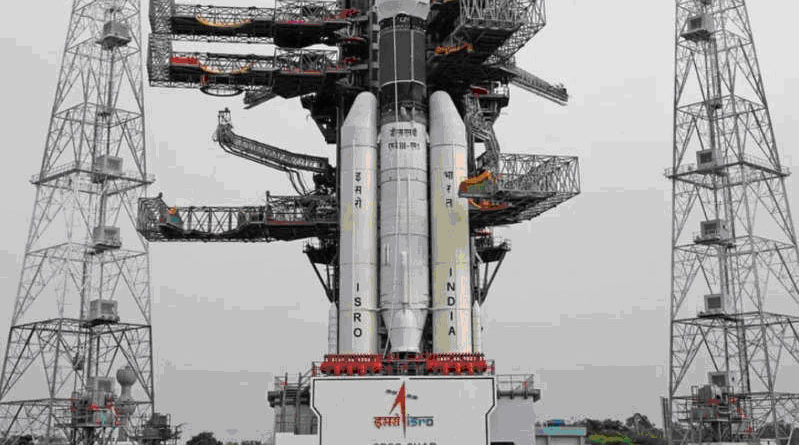Chandrayaan 2 Enters Moon’s Orbit After “Heart-Stopping” ISRO Move
Chandrayaan 2 moon mission: “Subsequently, the lander will separate from the orbiter and enter into a 100 km x 30 km orbit around the moon,” ISRO said on Tuesday. Chandrayaan 2 had lifted off from the spaceport at Sriharikota on July 22.
Bengaluru: August 20, 2019 17:29
- This was one of the trickiest operations in the mission
- Chandrayaan 2 is expected to land on lunar South Pole on September 7
- India is seeking to be fourth nation to land a spacecraft on the moon
India’s moonshot Chandrayaan 2 has been successfully manoeuvred into lunar orbit on Tuesday, after nearly 30 days of space travel. This was one of the trickiest operations in the mission.
A higher-than-expected approach velocity would have bounced off the spacecraft into deep space, while a slow approach would have led to the moon’s gravity to pull Chandrayaan 2 and crash it on the lunar surface.
The approach velocity had to be just right and the altitude over the moon rather precise. Even a small error would have killed the mission.
“Our heart almost stopped for 30 minutes till the job was done… Three more manoeuvres are to be completed. The next is tomorrow around 1 pm. The big event is on September 2 when the lander will be separated,” a visibly excited ISRO Chairman K Sivan told reporters on Tuesday.
“Following this, a series of orbit manoeuvres will be performed on Chandrayaan 2 spacecraft to enable it to enter its final orbit passing over the lunar poles at a distance of about 100 km from the moon’s surface,” the Indian Space Research Organisation said in a post on its website on Tuesday.
“Subsequently, the lander will separate from the orbiter and enter into a 100 km x 30 km orbit around the moon. Then, it will perform a series of complex braking manoeuvres to soft land in the south polar region of the moon on September 7, 2019,” ISRO said.
Prime Minister Narendra Modi congratulated the space agency.
The process of landing Chandrayaan 2 on the moon is very complex since it blasted off at a velocity of 39,240 kilometres per hour, which is almost 30 times the speed at which sound travels through air.
The former director of the ISRO satellite centre M Annadurai, who was the head of India’s first moon mission Chandrayaan 1, described the complexity of the operation: “It is like a gentleman with a rose in hand proposing to a lady who is dancing at a stunning speed of 3,600 kilometres per hour (almost five times the speed of an airplane), and not next door, but at a distance of 3.84 lakh kilometres away. If the couple have to meet, then the precision and accuracy is of utmost importance.”
India’s most ambitious space mission to date, Chandrayaan 2 had lifted off from the spaceport at Sriharikota in Andhra Pradesh on July 22. The lift-off was successful in its second attempt, a week after it was aborted just under an hour from its launch due to a technical glitch.
The mission stands out because of its low cost, with just about Rs. 1,000 crore spent – a much smaller price tag compared to similar missions by other countries.
If successful, the mission will make India the fourth country to soft land a rover on the lunar surface after Russia, US and China. The last nation to attempt a soft landing on the moon, Israel, failed in its mission earlier this year.
After shooting off into space, the spacecraft’s orbit was “progressively increased five times” between July 23 and August 6. It was then flung towards the moon, at a distance of 3.84 lakh kilometres away.
Courtesy: NDTV

